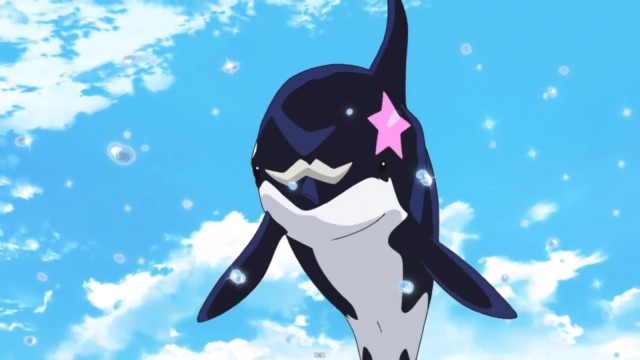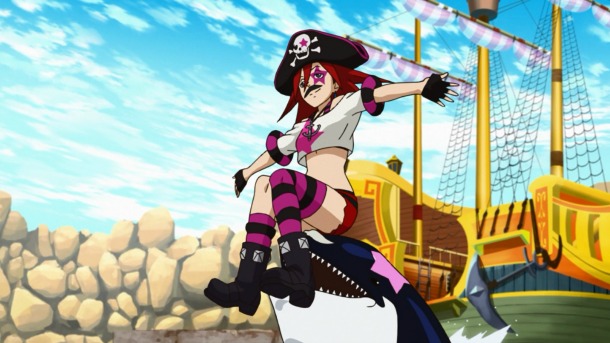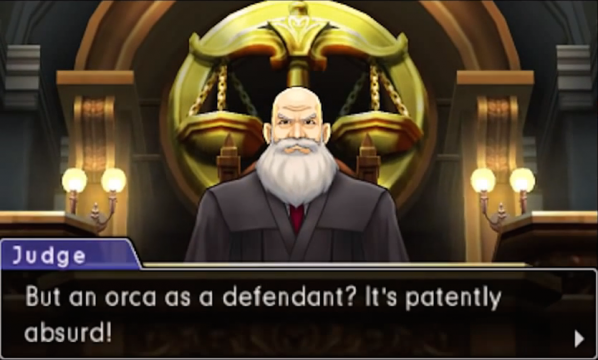
Before I start explaining the ridiculousness of this article’s title, it’s important to understand one of the many brilliant concepts invented by TV Tropes: Darkness-Induced Audience Apathy.
“Darkness-Induced Audience Apathy occurs when a conflict exists that simply lacks any reason for the audience to care about how it is resolved. This is often because the setting is extremely but meaninglessly Darker and Edgier, and/or all sides are abhorrently, equally evil—or at least, far enough gone that any difference between the two is splitting hairs.“
There’s a really strange phenomenon going on in the gaming industry in which stories are commonly told in an overly serious, dramatic fashion in an attempt to tell an engaging story. But ironically, gamers instead experience Darkness-Induced Audience Apathy and lose interest in these games. Ever wonder why Shadow the Hedgehog has a story that you can’t take seriously? Maybe it’s because Shadow carries a gun, swears in an awkward attempt to sound cool, does actions that are generally unlikable, and exists in a dull setting that’s hard to care about. Sure, this is only one extreme example, but it’s easy to see similar story elements happening in other modern games today.
Phoenix Wright: Ace Attorney – Dual Destinies almost fell down the same path for me. Those that love the series know it as a quirky lawyer game that can be just as funny as it is dramatic, but Dual Destinies could have broken that balance when it introduced the dark age of the law as a plot device. This phrase is something that all the characters mention throughout the game, constantly referencing the fact nobody trusts the court system because of the falsified evidence used by lawyers in the game’s universe. Dual Destinies made a huge push to make its setting darker than ever before in an attempt to gain consumer interest, yet the depressing tone of the story made me care less about the world itself.

One of the things that changed my opinion about Dual Destinies‘ story was an orca.
In the DLC case of Dual Destinies, you are tasked with defending an orca accused of murder. Because a dead body was found inside of the orca’s tank along with some bite marks, the orca is naturally under suspicion for this person’s death. Oh, and this is no ordinary orca either! This is the famous Orla Shipley, who is a big part of a pirate-themed television show for kids called the Swashbuckler Spectacular! Who wouldn’t want to see an orca wear a pirate hat and a fake mustache while fighting an evil pirate named Dead Captain Nostache? Obviously Phoenix Wright doesn’t object, so he decided to take Orla’s case and defend an animal in a court of law.
Because this is not a part of the main plot, there is virtually no mention of the dark age of the law. As a result, the writers had a little more creative freedom to do something completely and utterly insane like this, which works brilliantly. I can go on and on about how making Phoenix defend a killer whale is an absolutely hilarious concept, but it does something incredibly important for the story as a whole: it creates contrast. While this is still a murder case, the execution of the trial is done in such a way where it never takes itself too seriously. The silliness of the case allows the player to become attached to the world of Dual Destinies because it isn’t completely dismal in nature. Even when the story takes a darker turn later on, we can care about restoring the game’s world back to the normalcy we remembered having in this particular case.

When a world is constantly forced to be dark, we expect characters to do horrible things and nothing really impresses us when they fall in line with our expectations. As a result, none of the characters in this type of world are likable and the conflicts in the story become uninteresting as a whole. This is exactly why video games need to establish a contrast by having both good and bad things happen within their stories. In essence, the contrast between the good times and the bad times in a story helps us care about a world when it gets darker than we expected. We can remember the positive moments that happen and then fight to preserve them when conflicts arise, thus making a compelling story. Stories need fun and lighthearted moments to be engaging, which is exactly why other video games should learn from Orla the orca.
What do you think makes a compelling story? Do you agree or disagree with my orca theory for storytelling? I’d love to hear what you think, so please let me know in the comments below!




 ShareThis
ShareThis





